Launch Space, a high-tech business incubator for graduates based at the University of the West of England (UWE Bristol), has attracted 23 residents since launching in June 2017.
Based in the £16m University Enterprise Zone, Launch Space provides recent graduates from across the UK with free desk space for one year, innovation support and access to UWE Bristol researchers and facilities.
Professor Martin Boddy, Pro Vice-Chancellor for Research and Business Engagement, said, “Launch Space is already becoming a vibrant and inspiring community of hi-tech entrepreneurs. The University is a key innovation hub in the West of England and we are delighted to announce that each business at Launch Space has recently been given the chance to apply for a grant of up to £6,000 to help with research and development.”
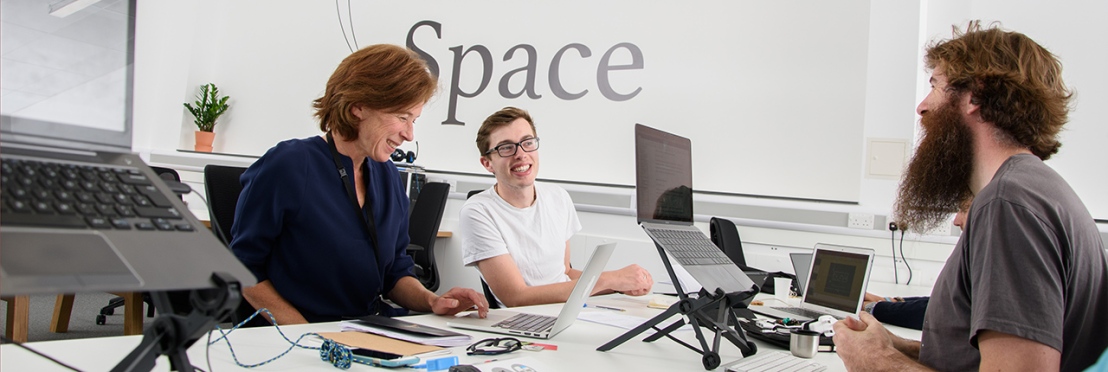 Current projects based at Launch Space include Tegru, a company developing a face mask for cyclists that includes built-in filter technology designed to reduce intake of harmful particles.
Current projects based at Launch Space include Tegru, a company developing a face mask for cyclists that includes built-in filter technology designed to reduce intake of harmful particles.
The incubator is also home to Bio Loop, a venture working on a system to convert waste milk into electricity. Run by a graduate from UWE Bristol’s Team Entrepreneurship degree, Bio Loop is working with a dairy company to help process waste milk using microbial fuel cell (MFC) technology to produce electricity. Bio Loop is collaborating with experts on development of a system using MFC technology developed at Bristol Robotics Laboratory (BRL)*.”
Another start-up is building an app called ‘Bunk’ that acts as an intermediary between landlords and tenants with the aim of improving the rental experience. Bunk will be powered by Blockchain technology, originally designed for the bitcoin digital currency, which allows digital information to be distributed but not copied and removes the need for a middleman in financial transactions. The model moves away from the current cash-heavy deposit system and allows customers to take out a monthly payment plan with an insurance company instead.
Launch Space has also attracted GigaTech, a company designing a configurable MIDI controller for music makers, Seatox, a business making beauty products out of seaweed, and Bonnie Binary, an enterprise developing a ‘soft’ games controller partly made out of textiles.
“For these graduate start-ups, working from this space is an enriching experience, given the flurry of activity around,” said Launch Space Incubation Manager Kim Brookes. “It is also important for the region, because the minute you give opportunity for innovation and creativity to thrive together, you could be creating a new industry, and this promotes the innovation economy”.
Launch Space forms part of a larger UWE Bristol innovation support programme that is receiving up to £2 million from the European Regional Development Fund (ERDF). Located alongside the Future Space technology incubation centre and the BRL, residents benefit from co-location with other innovative enterprises.
Those wishing to apply for a place at the incubator can do so here. Applicants are required to have a UK based business located or operating in the West of England (Bristol, Bath, South Gloucestershire, and North Somerset. The Launch Space team is on hand to help pre-start enterprise with the process of registered their business.

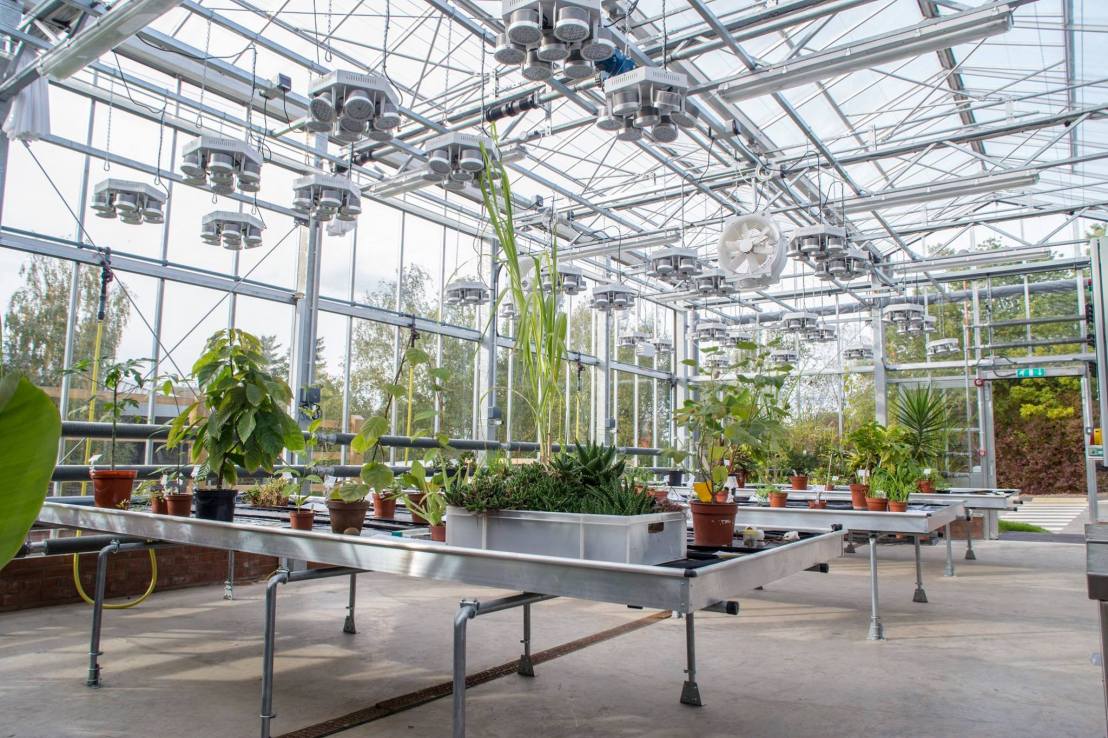
 The research will combine the CFPR’s knowledge of traditional photomechanical printing methods, such as Lippmann and Woodbury, and re-adapt the techniques for use on a 2.5D printer, which creates texture as part of an image on a substrate.
The research will combine the CFPR’s knowledge of traditional photomechanical printing methods, such as Lippmann and Woodbury, and re-adapt the techniques for use on a 2.5D printer, which creates texture as part of an image on a substrate.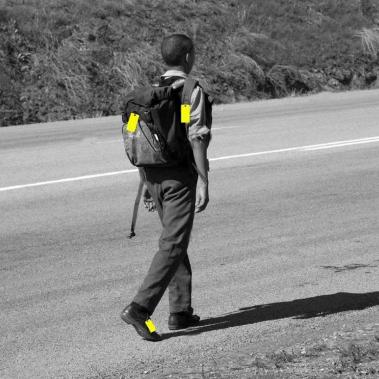

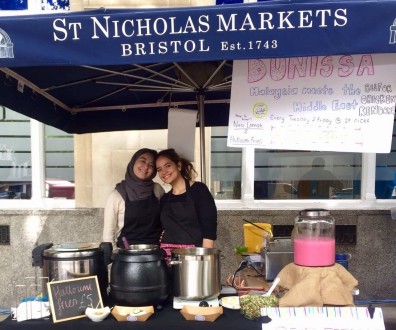 Following their success selling food on campus, Dunya and Melissa were encouraged to apply for the University’s Innovate Internship. This offers budding entrepreneurs with support to set up and run a business venture. Successful candidates are given £1000, provided with desk space (if required), and allocated a mentor who helps them set and achieve goals.
Following their success selling food on campus, Dunya and Melissa were encouraged to apply for the University’s Innovate Internship. This offers budding entrepreneurs with support to set up and run a business venture. Successful candidates are given £1000, provided with desk space (if required), and allocated a mentor who helps them set and achieve goals.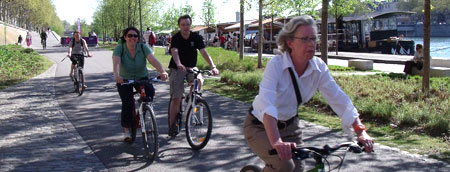 The impact of this travelling on our wellbeing has been studied before, but results have been inconclusive and we do not have a complete picture of how commuting affects different aspects of wellbeing.
The impact of this travelling on our wellbeing has been studied before, but results have been inconclusive and we do not have a complete picture of how commuting affects different aspects of wellbeing.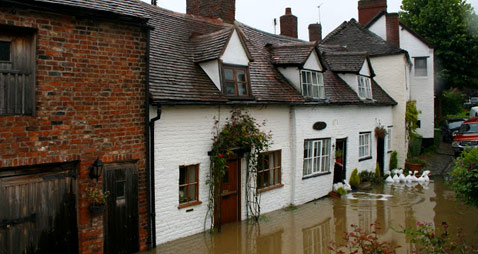 This year has seen gargantuan hurricanes roaring across the Caribbean, with storms also making landfall in the UK, which can increase instances of flooding. Experts from organisations like the Met Office and the Environment Agency tell us that global warming will most likely lead to the UK experiencing increased flooding in the years to come. But don’t despair: there is help and advice at hand and the
This year has seen gargantuan hurricanes roaring across the Caribbean, with storms also making landfall in the UK, which can increase instances of flooding. Experts from organisations like the Met Office and the Environment Agency tell us that global warming will most likely lead to the UK experiencing increased flooding in the years to come. But don’t despair: there is help and advice at hand and the 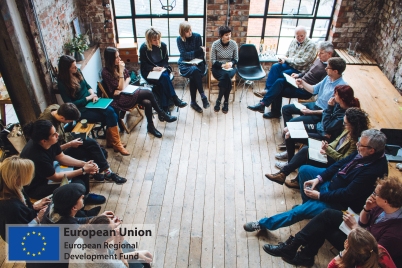 These creative hubs offer tailored events, workshops and mentoring for individuals and small enterprises to support their business development from the idea stage through to start-up and on to growth.
These creative hubs offer tailored events, workshops and mentoring for individuals and small enterprises to support their business development from the idea stage through to start-up and on to growth.